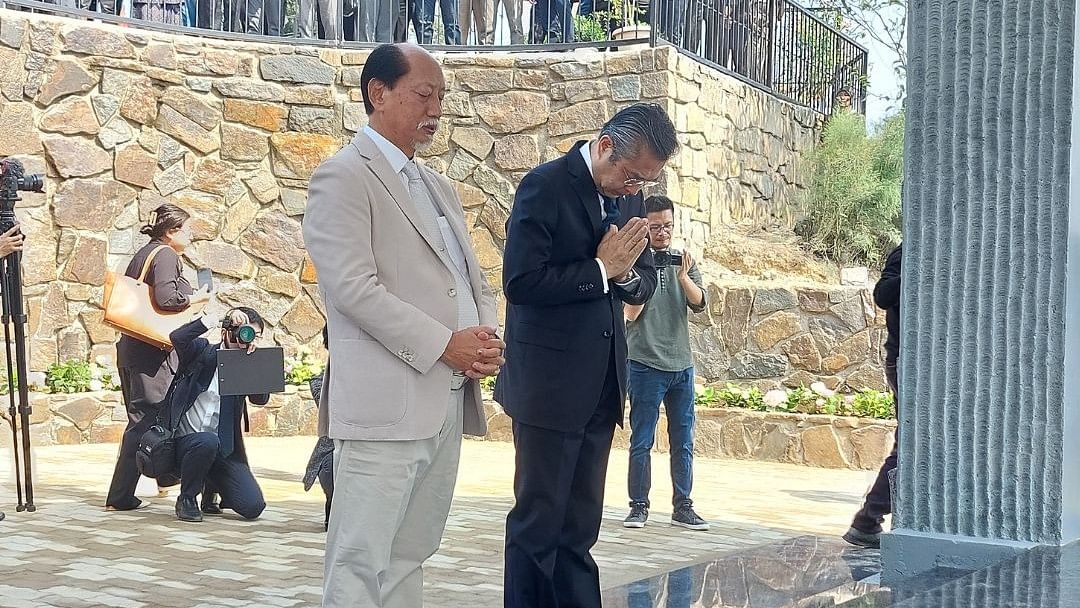
Nagaland CM Neiphiu Rio (left) and Hiroshi Suzuki at the Kohima Peace Memorial.
Credit.X/@airnewsalerts
Guwahati: Eight decades after the Nagas had fought against the Japanese soldiers in the Battle of Kohima during World War-II, Ambassador of Japan to India, Hisroshi Suzuki on Wednesday inaugurated the Kohima Peace Memorial and an Eco Park in Nagaland capital.
The project of the memorial and the eco park is being implemented with financial aid of Japan International Cooperation Agency (JICA), a Japanese government agency, Nagaland government said in a statement.
Nagas were forced by the British to join the Allied Forces and fight against the Japanese soldiers during the Battle of Kohima in 1944. The Japanese forces that had entered the Northeast from neighbouring Burma (present Myanmar) tried to capture the Kohima Ridge, which was part of the route through which the British and Indian troops were supplied for the war, but were defeated. Many Japanese soldiers died in the battle and their remains remained lying in the jungles and hills of Nagaland and some other parts of Northeast.
Inaugurating the memorial, Ambassador Hiroshi said Nagas were caught in the crossfire during the war between Japanese forces and the British Commonwealth Forces. "The people of Nagaland who had nothing to do with the war, inevitably had to go through a great ordeal where many were coerced into cooperation and many people lost their lives and most people were forced to flee from the land of their ancestors. I am deeply honored to witness the inauguration of the Kohima Peace Memorial here today and that the monument enabled us to offer our most solemn prayers to all the victims of the battle," he said.
Mortal remains
Between 2019 and 2022, a team of Japan Association for Recovery & Repatriation of War Casualties with the help of the Nagaland government carried out excavations in Nagaland under the World War-II Remains Recovery project of the Japan government. The remains were collected mainly from Wokha, Kohima and Phek district in Nagaland.
"I am convinced that the friendship originally fostered through the remains collection between Japan and Nagaland will be further strengthened through the construction of the eco-park as well as the exchange of young people, and they will become new bridges between India and Japan,” Ambassador Hiroshi further said.
Nagaland CM Neiphiu Rio, while addressing the event said, "The event marks an important milestone in the narrative of Naga-Japan partnership, which though started under the cloud of conflict, today matured into one for advocating peace and brotherhood of humanity, the message that has been embodied by the Kohima Peace Memorial."
The Japanese Ambassador later visited the Kohima war Cemetery and Kohima Cathedral, where mortal remains of many Japanese soldiers who had died during World War-II were also laid to rest. The Japanese government is assisting in the implementation of a forest management project and another related to healthcare in Nagaland.
Many soldiers belonging to the Allied Forces including the US had also disappeared in the Northeast during World War-II. Japan is the second country after the US, which was granted permission by India to carry out excavations and to take back their possible mortal remains.